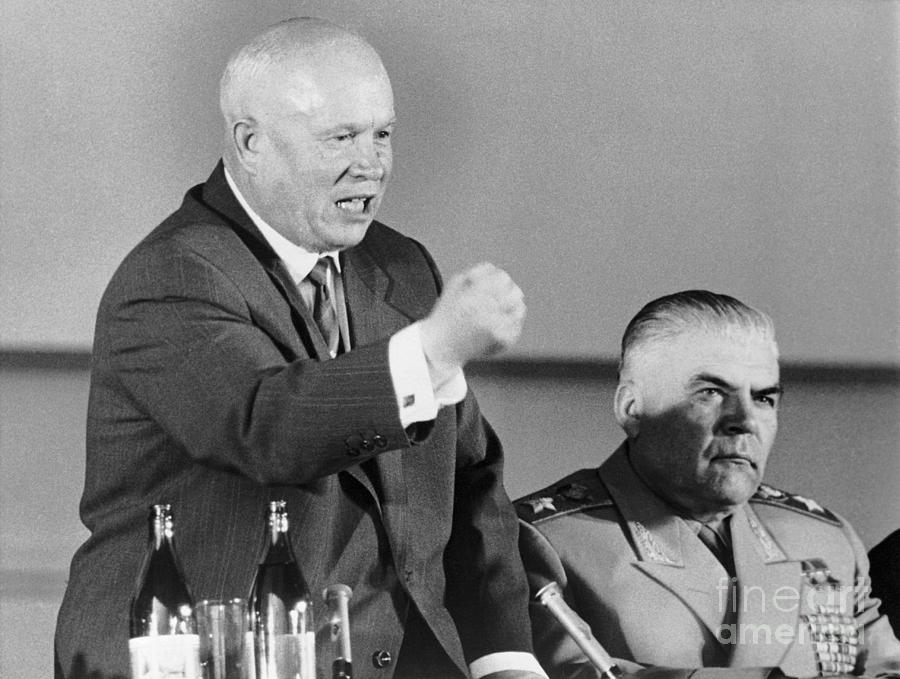Natasha Anguelouch Week #10: Misinterpretation

I recently heard about the misinterpretation of a simple phrase that would be comical if it weren’t so frightening. It was uttered by Nikita Khrushchev , the First Secretary of the Communist Party and known for his “ eccentric outbursts .” He is said to have taken his shoe off and slammed it against a table at an assembly once, and though there is debate as to whether this truly happened, the fact that such contention exists is indicative enough of his personality. Khrushchev was smart but uneducated and prone to blurting blunt, tasteless things, one of which nearly caused World War III. In 1956 Khrushchev told Western ambassadors that “we [the Soviet Union] will bury you.” This caused global outrage as political leaders misconstrued it as a direct military threat and call to war. Fortunately and unfortunately, their panic was unfounded. “We will bury you” was simply translated too literally from Russian--the actual phrase has several connotations such as “we will outlast y...







